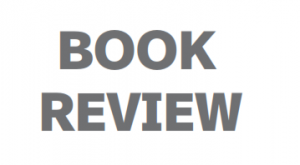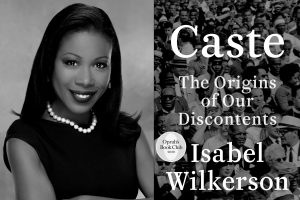 Isabel Wilkerson’s masterwork, Caste: The Origins of Our Discontents, makes painfully clear exactly who we are. She expertly lays out how systemic discrimination, abuse, and murder of those within the lowest caste of the US is intrinsic to the fabric of our country. With each successive horrific abuse of black and brown people captured on phones and broadcast to the world, myriad white Americans exclaim, “This is not who we are.” They should read this book.
Isabel Wilkerson’s masterwork, Caste: The Origins of Our Discontents, makes painfully clear exactly who we are. She expertly lays out how systemic discrimination, abuse, and murder of those within the lowest caste of the US is intrinsic to the fabric of our country. With each successive horrific abuse of black and brown people captured on phones and broadcast to the world, myriad white Americans exclaim, “This is not who we are.” They should read this book.
Caste reframes the analysis of systemic racism within the broader understanding that we are living in a caste system. While some people might know that Nazis looked to the US to emulate our attempts to eradicate Native Americans, most are not aware they studied our racist policies as a blueprint for beginning the Holocaust.

“They were looking to move quickly with their plans for racial separation and purity, and knew that the United States was centuries ahead of them with its anti-miscegenation statutes and race-based immigration bans” (p. 79).
This chapter alone, the searing reality that we were the model for the Nazis’ genocidal reign, makes the book worth reading. She describes in detail the rigid systems of categorization developed by the Nazis, along with the Indian caste system, to illustrate how the United States is supported by the same “pillars of caste.”
White people must take seriously the responsibility of learning the true history of the US from authors of color. While we may not expect to be surprised by the atrocities inflicted on the lowest caste, gaining a greater understanding of how we got to this place is worth our time. Throughout Caste, Wilkerson shares stories that drive home the daily abuses that people in the lowest caste of America go through; from the brutality against enslaved people to the daily disrespect, or “microaggressions,” black and brown people face as they simply try to live their lives.
Caste reframes the analysis of systemic racism within the broader understanding that we are living in a caste system.
Covering the span of English colonization up to the present, she makes clear how Trump’s election was not an aberration, but a manifestation of the fears of those at the top of the system, working to ensure they don’t lose power. “Many political analysts and left-leaning observers did not believe that a Trump win was possible and were blindsided by the outcome in 2016, in part because they had not figured into their expectations the degree of reliable consistency of caste as an enduring variable in American life and politics”
(page 324).
As Wilkerson adeptly weaves historical research, interviews with Indian Dalit (or Untouchable) activists and scholars, I found myself nodding in agreement, shaking my head in disbelief, and wishing for a magic wand that could bring reconciliation, healing, and reparations to those who have suffered at the bottom rungs of caste. This book should be required reading in high schools and colleges across our nation.
There are no answers within this book, as much as one might hope for a guide to dismantling the system. But how could Wilkerson offer an antidote to the foundational poison that runs through our blood? ”No ethnic or racial category is immune to the messaging we all receive about the hierarchy, and thus no one escapes its consequences’’ (p. 71). Regardless of our intentions and beliefs, if we have grown up in this country, we have lived with toxic ideas of lower caste people infusing the air we breathe.
Wilkerson’s first Pulitzer Prize winning book, The Warmth of Other Suns, was illuminating in its own right, following African Americans in the Great Migration from the southern US. Caste lays bare the foundations that meant their change of location could never be enough to free them from the position they had been assigned, long before their births.
Whether you have read numerous books on the history of race and power in America, or have yet to explore that aspect of who we are, Caste is an essential read. Compelling, engaging, scholarly, and replete with analogies and metaphors to illustrate our current condition, Wilkerson’s voice helps to understand the cost of the brutality and division our country was founded on.
Samantha Chandler is a white, queer, anti-racist language arts teacher at NOVA Middle School and Co-founder of the Olympia Family Theater.

Be First to Comment